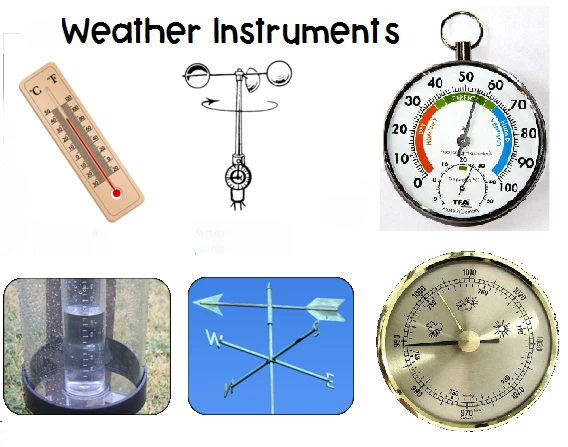
# The Instruments of the Weather
## Understanding the Tools That Measure Our Atmosphere
Weather instruments play a crucial role in our daily lives, helping meteorologists predict storms, farmers plan their crops, and travelers prepare for their journeys. These specialized tools have evolved significantly over centuries, from simple observations to sophisticated digital devices.
### The Essential Weather Instruments
1. Thermometer
The humble thermometer measures air temperature, one of the most fundamental weather parameters. Modern digital thermometers provide instant readings, while traditional mercury thermometers still find use in many applications.
2. Barometer
This instrument measures atmospheric pressure, helping predict short-term weather changes. Falling pressure often indicates approaching storms, while rising pressure suggests fair weather ahead.
3. Hygrometer
Humidity measurement is critical for understanding comfort levels and predicting precipitation. Hygrometers come in various forms, from simple hair tension devices to advanced electronic sensors.
4. Anemometer
Wind speed measurement is essential for aviation, marine activities, and storm prediction. The most common type features three or four cups that rotate with the wind.
5. Rain Gauge
This simple but vital instrument measures precipitation amounts. Modern versions can automatically record data, while traditional models require manual measurement.
## Advanced Weather Measurement Tools
Weather Stations
Modern automated weather stations combine multiple instruments into single units, often transmitting data wirelessly to central collection points. These stations can measure temperature, humidity, wind speed and direction, rainfall, and sometimes even solar radiation.
Radar Systems
Weather radar has revolutionized storm tracking by detecting precipitation intensity and movement. Doppler radar can also measure wind speed and direction within storms, providing critical information for tornado warnings.
Satellite Technology
Weather satellites provide a global perspective, monitoring cloud patterns, storm systems, and even ocean temperatures from space. Geostationary satellites maintain fixed positions, while polar-orbiting satellites provide complete global coverage.
## The Importance of Accurate Weather Instruments
Reliable weather data affects nearly every aspect of modern life, from agriculture to transportation to emergency preparedness. As climate change becomes an increasing concern, the role of precise weather instrumentation grows ever more important for tracking long-term patterns and changes in our atmosphere.
Whether simple mechanical devices or complex electronic systems, weather instruments form the foundation of meteorological science. Their continuous improvement helps us better understand and predict the behavior of our dynamic atmosphere.
Keyword: instruments of the weather
Comments are closed